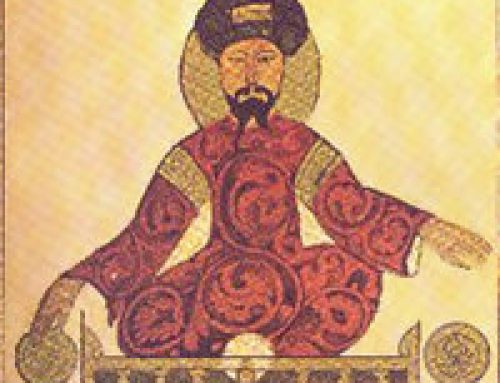
The Roman emperor Hadrian, 117-138 AD (now in the British Museum)
Well, they revolted again
During the reign of the Roman Emperor Hadrian, the Jews once again tried to get free of Roman rule. But like the First Jewish Revolt, this revolt failed as well.
The First Jewish Revolt
Who was Emperor Hadrian?
Antiquity timeline
All our ancient Rome articles
In addition, Hadrian hated the Jews. Hadrian was really into anything Greek, including Greek religion. He thought Judaism (and probably Christianity) was a superstition.
Greek religion
Roman religions
What’s the Diaspora?
When the Second Jewish Revolt was over, Hadrian didn’t just bring Israel back under Roman rule. He also forced most Jewish people to leave Jerusalem and Israel. They had to settle elsewhere in the Roman or Parthian empires. People called this the Diaspora (die-ASS-pour-ah), like dispersion, because it scattered the Jews. It has a lot in common with the Babylonian Captivity.
What’s the Babylonian Captivity?
Who are the Parthians?
Roman Egypt
The Roman economy
So there got to be fewer Jews in Israel, and a lot more Jews in Babylon, Alexandria, Rome, and other big cities of the Roman and Parthian empires. And because Jewish people didn’t have their land anymore, many of them became traders. Many Jewish families arranged to have brothers or sisters or cousins in different cities, so they could trade among trusted family members.

Synagogue at Capernaum
The Jews build synagogues
Diaspora Jews kept on celebrating their holidays: Rosh Hashanah, Yom Kippur, Sukkot, Hanukkah, Purim, Passover. Many Jews now lived where the old festivals didn’t make much sense anymore. They weren’t harvesting at Sukkot, or eating the new barley at Passover. But they kept the same holidays anyway.
To meet together and pray, the Jews built many synagogues all around the Roman and Parthian Empires. This one is in Capernaum (ka-pear-NOW-um), in Israel. It was built in the fourth century AD. But the ruins of an earlier 1st c. AD synagogue lie beneath it and archaeologists recently excavated it. That shows that really not all the Jews left Israel in the Diaspora. Some of them stayed where they were.
What is a synagogue?
What is a rabbi?

Mordecai is leading Esther (on the horse) to talk to the Persian king. A fresco from the world’s oldest preserved synagogue at Dura-Europos in Syria (244 AD)
The synagogue of Dura-Europos
Other synagogues were in other places, not in Israel. This is a wall-painting (a fresco) from the synagogue of Dura-Europos in Syria. Dura was mainly a Parthian town though sometimes captured by the Romans. It was painted in the third century AD. Later it was buried under a big dirt wall that Roman soldiers built to defend Dura-Europos against the Sassanid invaders. That preserved the painting so we can see it today.
Who were the Sassanians?
What’s the story of Esther?
The painting shows the story of Esther from the Bible. Can you see Esther all the way on the right? Haman is on the horse. Why would the story of Esther be especially important to Diaspora Jews living in the Parthian empire?
